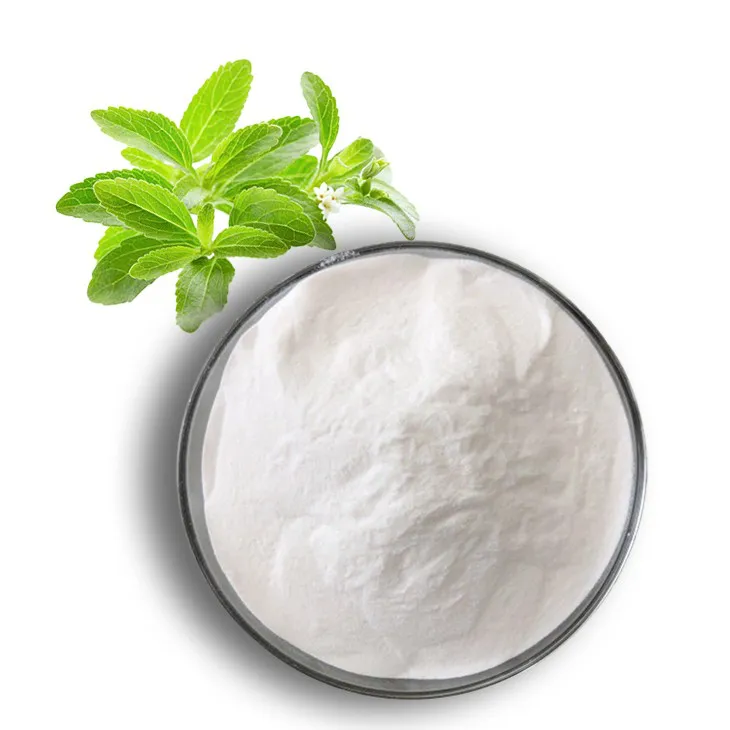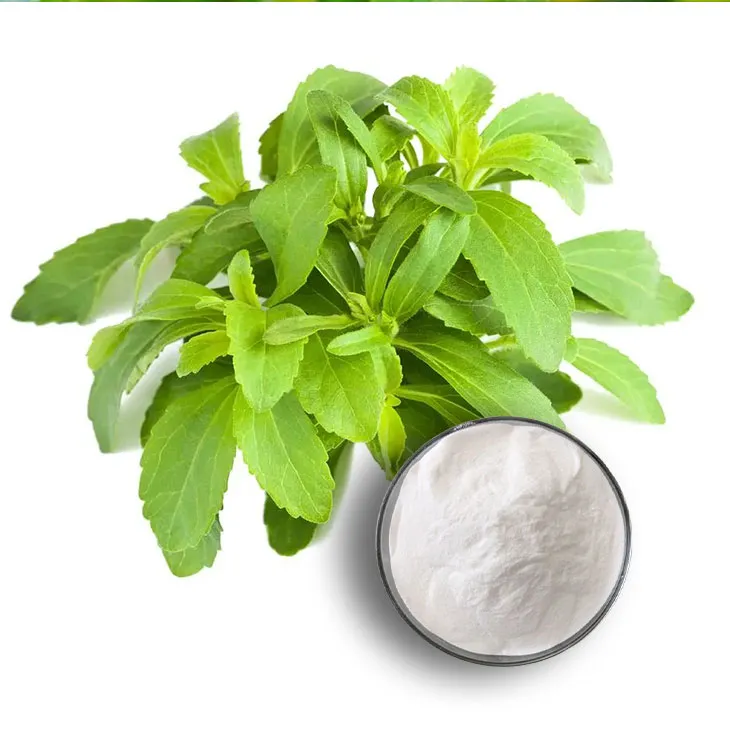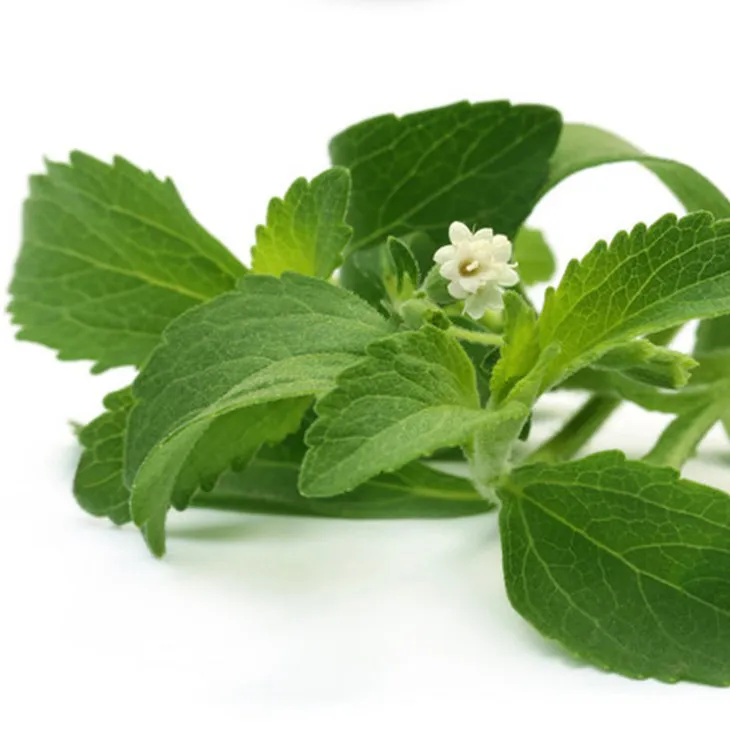- 0086-571-85302990
- sales@greenskybio.com
Organic non - transgenic stevia extract.
2024-12-01

1. Introduction
Organic non - GMO Stevia Extract has been receiving a great deal of attention in recent years. Stevia, a natural sweetener, comes from the leaves of the Stevia rebaudiana plant. The fact that it is organic and non - GMO is of great significance as it caters to the increasing consumer demand for clean - label and natural products.

2. Sweetness and Calorie Content
This extract is far sweeter than sugar. In fact, it can be several hundred times sweeter than sucrose. However, it contains almost no calories. This makes it an excellent substitute for people who are aiming to cut down on their sugar consumption. For those who are health - conscious or have to control their calorie intake due to certain health conditions such as diabetes or obesity, Stevia Extract offers a viable alternative.

3. Taste Profile
Stevia Extract has a unique taste profile. It is sweet, with a slightly herbal note. This taste may not be exactly the same as that of sugar, but it has its own charm. When used in food and beverage products, it imparts a distinct flavor.
3.1 Taste in Different Products
In soft drinks, it provides the necessary sweetness without the high - calorie load of sugar. In baked goods, it can be a bit more challenging to use as its taste may interact differently with other ingredients compared to sugar. However, with proper formulation, it can still produce acceptable and even delicious results.

4. Applications in the Food and Beverage Industry
In the food and beverage industry, the use of organic non - GMO stevia extract is widespread.
- Soft drinks: Many companies are now using stevia extract in their diet or zero - calorie soft drinks. It helps to maintain the sweet taste that consumers expect while reducing the sugar content. For example, some popular cola brands have started to incorporate stevia extract into their product formulations.
- Baked goods: As mentioned earlier, although it requires some adjustment in recipes, it can be used in cakes, cookies, and bread. Some bakeries are experimenting with stevia extract to create "healthier" versions of their traditional products.
- Dairy products: In items like yogurt and ice cream, stevia extract can be used to sweeten without adding a large number of calories. This is especially appealing to consumers who are looking for low - calorie or diet - friendly dairy options.
- Confectionery: Candy manufacturers are also exploring the use of stevia extract. It can be used in hard candies, gummies, and other confectionery items to reduce the sugar content while still providing a sweet taste.

5. Health Benefits
From a health perspective, organic non - GMO stevia extract may offer certain benefits.
- Blood sugar levels: Some studies suggest that stevia extract could have potential effects on blood sugar levels. It may help in regulating blood sugar, which is crucial for people with diabetes or those at risk of developing diabetes. However, more research is needed to fully understand the mechanisms and the extent of its impact on blood sugar control.
- Weight management: Since it contains almost no calories, it can be a useful tool in weight management. By substituting sugar with stevia extract in food and beverages, individuals can reduce their overall calorie intake, which may contribute to weight loss or weight maintenance.
- Dental health: Unlike sugar, stevia extract does not promote tooth decay. Sugar is a major contributor to dental cavities as it provides a food source for the bacteria in the mouth. Stevia extract, on the other hand, does not have this negative effect on dental health.
6. Sustainable Farming Practices
Organic non - GMO stevia extract also aligns with sustainable farming practices.
- No GMO use: Since it can be cultivated without the use of genetically modified organisms, it reduces potential environmental impacts. Genetically modified crops may have some concerns regarding their long - term effects on the environment, such as gene flow to wild relatives or potential impacts on non - target organisms. By choosing non - GMO stevia, farmers can contribute to a more sustainable agricultural system.
- Organic cultivation: Organic farming methods for stevia involve the use of natural fertilizers and pest control methods. This helps to maintain soil health, reduce chemical pollution, and protect biodiversity. For example, instead of using synthetic pesticides, organic farmers may use natural predators or plant - based repellents to control pests.
- Water conservation: Stevia is a relatively drought - tolerant plant. This means that it requires less water compared to some other crops. In regions where water is scarce, growing stevia can be a more sustainable option, helping to conserve water resources.
7. Market Trends and Consumer Acceptance
The market for organic non - GMO stevia extract is growing steadily.
- Increasing consumer awareness: Consumers are becoming more aware of the health and environmental benefits of stevia extract. They are actively seeking out products that contain stevia as a sweetener. This is driving the demand for stevia - containing products in the market.
- Industry response: The food and beverage industry is responding to this consumer demand by incorporating stevia extract into more of their products. This includes both large - scale manufacturers and small - scale artisanal producers.
- Regulatory environment: Regulatory bodies in different countries are also playing a role in the growth of the stevia market. As more research is being done on stevia and its safety, regulatory approval for its use in food and beverages is becoming more widespread.
8. Challenges and Future Directions
Despite its many advantages, organic non - GMO stevia extract also faces some challenges.
- Taste adaptation: As mentioned earlier, the taste of stevia extract is different from that of sugar. Some consumers may find it difficult to adapt to this new taste. Food and beverage companies need to work on improving the taste profile or finding ways to blend stevia with other sweeteners to make it more acceptable to a wider range of consumers.
- Cost of production: The cost of producing high - quality stevia extract, especially the organic and non - GMO variety, can be relatively high. This may be due to factors such as the cost of organic farming practices and the extraction process. As a result, the price of stevia - containing products may be higher compared to those sweetened with traditional sugar, which could limit its market penetration.
- Research needs: While some studies have been done on stevia extract, more research is still needed. This includes further investigations into its health benefits, potential side effects, and optimal usage in different products.
- Improved extraction techniques: Research into more efficient and cost - effective extraction techniques can help to reduce the production cost and improve the quality of the extract.
- Product innovation: Continued innovation in product formulation to better incorporate stevia extract into various food and beverage products will be crucial. This may involve creating new blends of sweeteners or developing new product categories specifically designed for stevia.
- Global expansion: As the awareness of stevia extract spreads globally, there is an opportunity for its market to expand into new regions. This will require addressing regulatory and cultural differences in different countries.
FAQ:
What is organic non - GMO stevia extract?
Organic non - GMO stevia extract is a natural sweetener sourced from the leaves of the Stevia rebaudiana plant. It is organic, meaning it is produced following organic farming standards, and non - GMO, which indicates it is not derived from genetically modified organisms.
Why is it becoming so popular?
It is becoming popular because it meets the increasing consumer demand for clean - label and natural products. Also, it is much sweeter than sugar but has almost no calories, making it a great substitute for those wanting to cut down on sugar intake.
What does it taste like?
It has a unique taste profile. It is sweet with a slightly herbal note.
In which products is it used?
It is used in a wide range of food and beverage products, including soft drinks and baked goods.
Are there any health benefits?
Some studies suggest it could have potential effects on blood sugar levels, but more research is needed.
Related literature
- The Health Benefits of Organic Stevia Extract"
- "Stevia: A Natural and Organic Sweetener - A Comprehensive Review"
- "Non - GMO Stevia in Sustainable Food Production"
- ▶ Hesperidin
- ▶ citrus bioflavonoids
- ▶ plant extract
- ▶ lycopene
- ▶ Diosmin
- ▶ Grape seed extract
- ▶ Sea buckthorn Juice Powder
- ▶ Beetroot powder
- ▶ Hops Extract
- ▶ Artichoke Extract
- ▶ Reishi mushroom extract
- ▶ Astaxanthin
- ▶ Green Tea Extract
- ▶ Curcumin Extract
- ▶ Horse Chestnut Extract
- ▶ Other Problems
- ▶ Boswellia Serrata Extract
- ▶ Resveratrol Extract
- ▶ Marigold Extract
- ▶ Grape Leaf Extract
- ▶ blog3
- ▶ blog4
-
The best lemon juice powder in nature.
2024-12-01
-
Organic Vitamin K2 Powder Suppliers
2024-12-01
-
Bulk purchase of L - tyrosine.
2024-12-01
-
Vitamin K2 Manufacturers
2024-12-01
-
100% Pure Natural Rutin.
2024-12-01
-
Chinese Citrus Bioflavonoid Suppliers.
2024-12-01
-
Saponin Extract
2024-12-01
-
Ivy Extract
2024-12-01
-
Jujube Extract
2024-12-01
-
Marigold Extract
2024-12-01
-
Gynostemma pentaphyllum extract
2024-12-01
-
Hedyotis Diffusa Extract
2024-12-01
-
Epimedium extract powder
2024-12-01
-
Golden Seal Extract
2024-12-01
-
Lemon Balm Extract
2024-12-01
-
Sugarcane Extract
2024-12-01





















